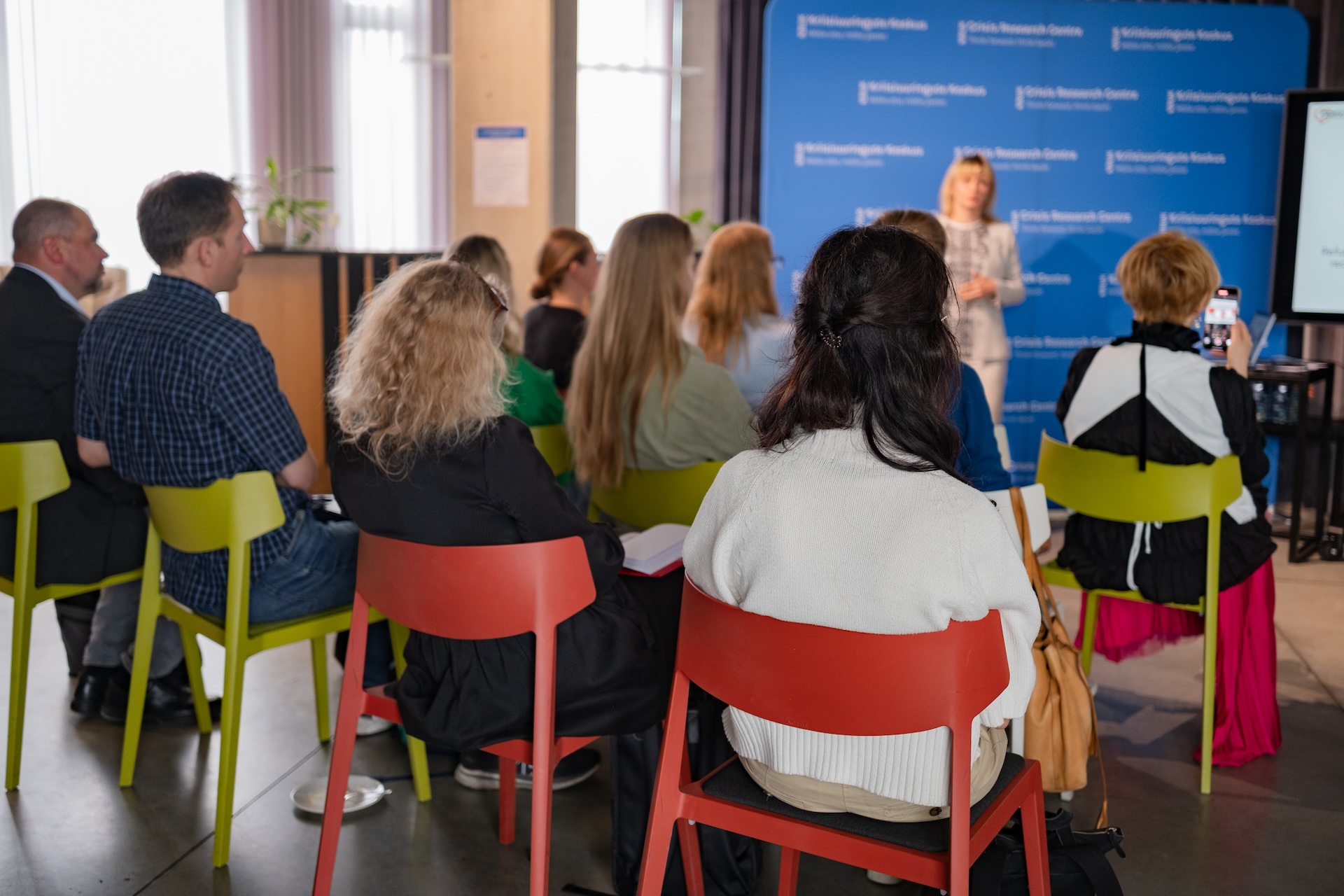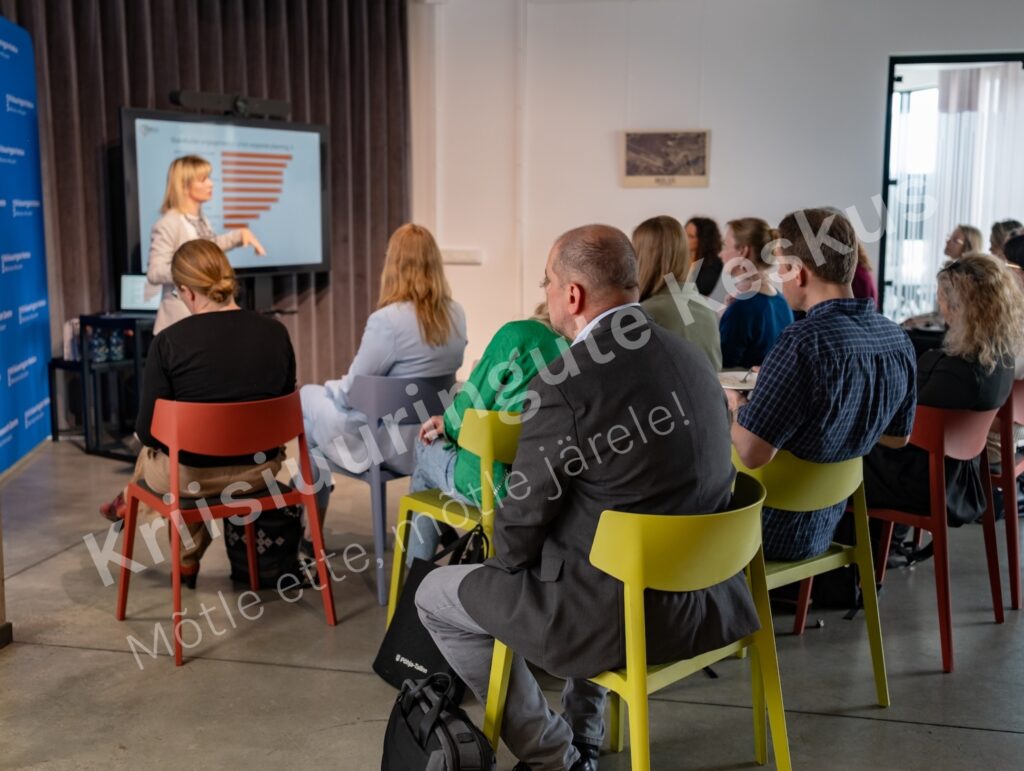
Estonian and Ukrainian experts gather for a final seminar as part of a community-based crisis skills project in Väike-Õismäe
On May 28, the crisis skills project’s final seminar in Väike-Õismäe focused on the role of communities in crisis preparedness. The Crisis Research Centre organised the event, which brought guests from Ukraine to Tallinn. The seminar provided both inspiring experiences and a lively discussion about how local governments, civil society, and communities can collaborate before and during crises.
Anne-May Nagel, co-founder of the NGO Crisis Research Centre, delivered the seminar’s opening remarks, emphasising the importance of projects that promote local preparedness and resilience. “We’ve been running crisis preparedness projects in communities for the past two years, and this year we began measuring the impact of our efforts.” We will publish the project training program’s final report in the autumn, where you can learn more about the project’s activities and impact,” she said.
The seminar’s keynote speaker was Dr. Mariia Tyschenko, Director of the Ukrainian NGO Poruch and Honorary Doctor of Malmö University. In her presentation ‘Power of community in crisis – the example of Ukraine‘, she shared her experiences in Ukraine, where civil society and local authorities have worked together to respond to crises. She discussed how communities are strengthened during crises, as well as what practical steps can be taken ahead of time to improve preparedness.
The second half of the day was spent discussing ‘How to help communities prepare for crises‘. The panel featured:
- Dr. Mariia Tyschenko (NGO Poruch, Ukraine)
- Maria Derlõs (Tallinn City Office)
- Hannes Nagel (NGO Crisis Research Centre)
- Kadi Luht-Kallas (Estonian Ministry of the Interior)


The discussion focused on improving community preparedness in Estonia and Ukraine, including best practices and challenges. It was agreed that communities are on the front lines of crises, and that their support cannot be solely moral; a systemic approach, resources, and knowledge-based support are required.
Brigadier General Oleksandr Potii, Head of Ukraine’s State Service of Special Communications and Information Protection, also attended the event, where he outlined the reality of Ukraine’s efforts to protect critical infrastructure and communities. Brigadier General Potii presented the Crisis Research Centre with a Service commemorative coin and a newly published analytical report on Ukraine’s experience in cyber defence as a token of cooperation between Ukraine and Estonia.
Miltton New Nordics generously supported the event, for which we are grateful.
The seminar was part of the Väike-Õismäe civil protection K-24 project, which is supported by the National Foundation for Civil Society and the Estonian Ministry of the Interior. The project is focused on community crisis preparedness and raising awareness among local residents.
🟧🟦 The Crisis Research Centre manages the K-24 project’s activities, which are funded by the National Foundation for Civil Society through the Estonian Ministry of the Interior.
Photos: seminar on May 28 (Crisis Research Centre Keskus, 2025).
Jaga postitust:
